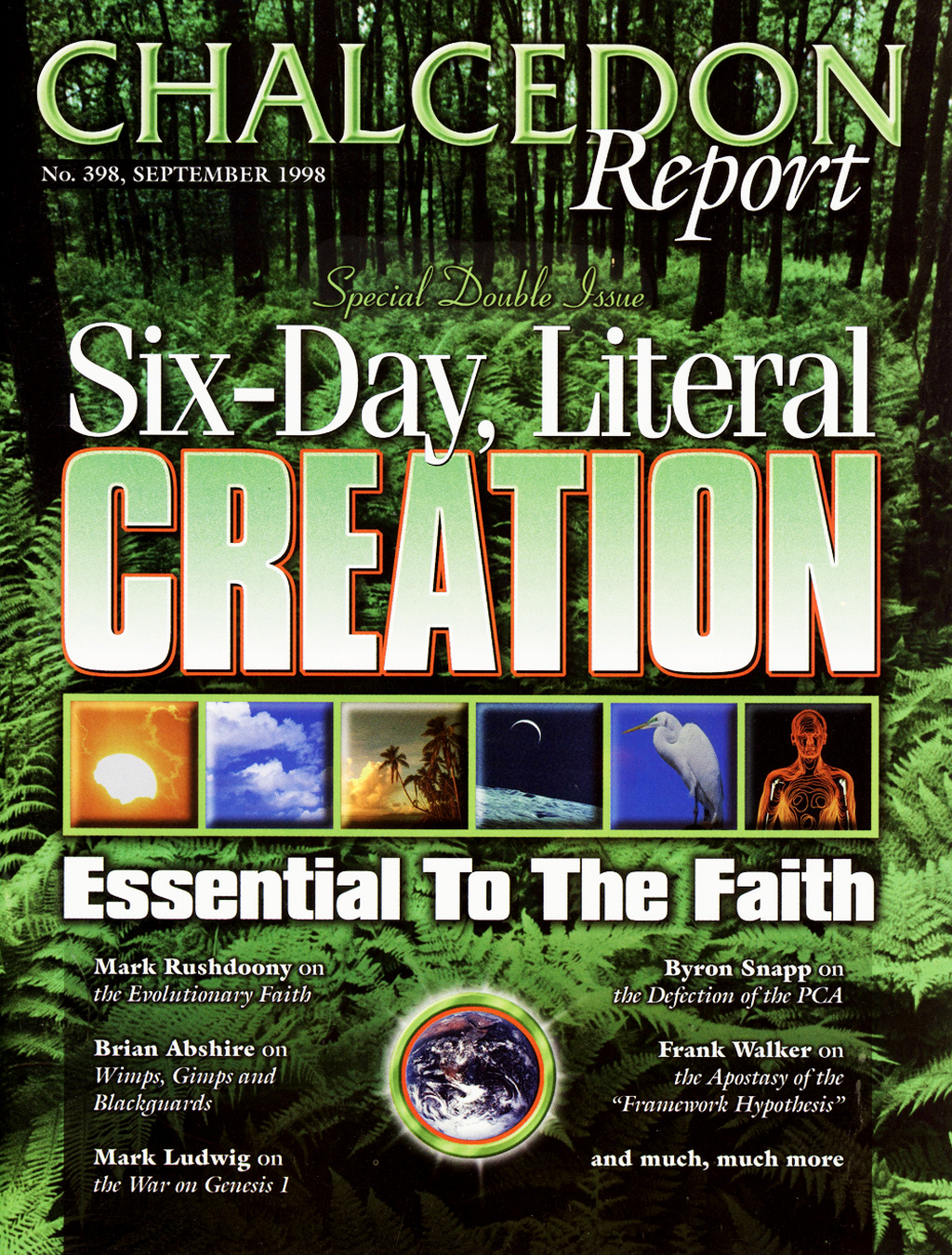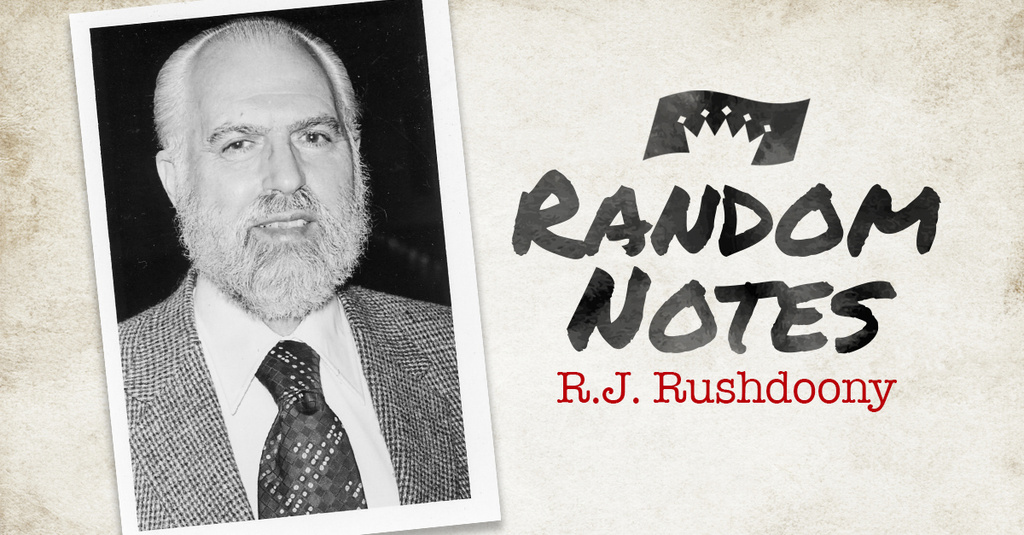
Magazine Issue
Six-Day, Literal Creation: Essential to the Faith
September 1998 Articles:
The Importance of Six-Day Creation

- R. J. Rushdoony
The Objectivity of Biblical History
- P. Andrew Sandlin
Evolutionary Faith

- Mark R. Rushdoony
Wimps, Gimps and Blackguards: Creation, Presuppositions, and Treason
- Brian M. Abshire
The Meaning of "Day" in Genesis 1-2
- William O. Einwechter
The War Against Genesis 1
- Mark A. Ludwig, Ph.D.
Creating a Controversy
- Byron Snapp
A Declaration
- Larry E. Ball
One Man's Journey to a Proper Understanding of Origins
- Daniel Lance Herrick
Reformed Theology and Six-Day Creation
- Kenneth L. Gentry, Jr., Th.D.
A Critique of the Framework Hypothesis
- Frank Houston Walker, Jr.
Literal, Six-Day Creation and the Local Church
- Charles A. McIlhenny
Dr. Walt Brown's Hydroplate Theory

- Martin G. Selbrede
Reformed Faith and Life: Update on The French Broadcast Ministry
- Aaron R. Kayayan
Both Sides Now
- Steve M. Schlissel

The Cultural Conflict

- R. J. Rushdoony

Random Notes, 82

- R. J. Rushdoony
All I Really Need to Know I Learned in the Old Testament (Part 2)
- Steve M. Schlissel